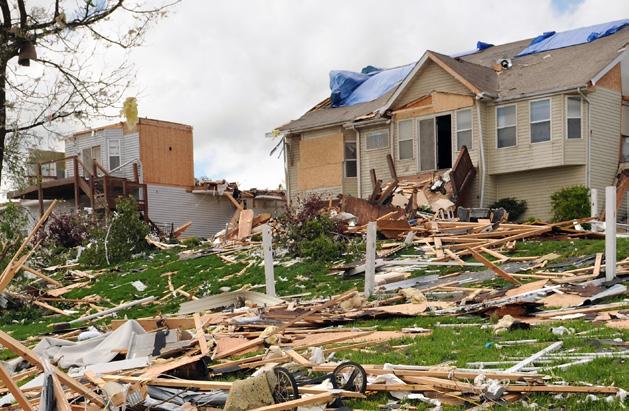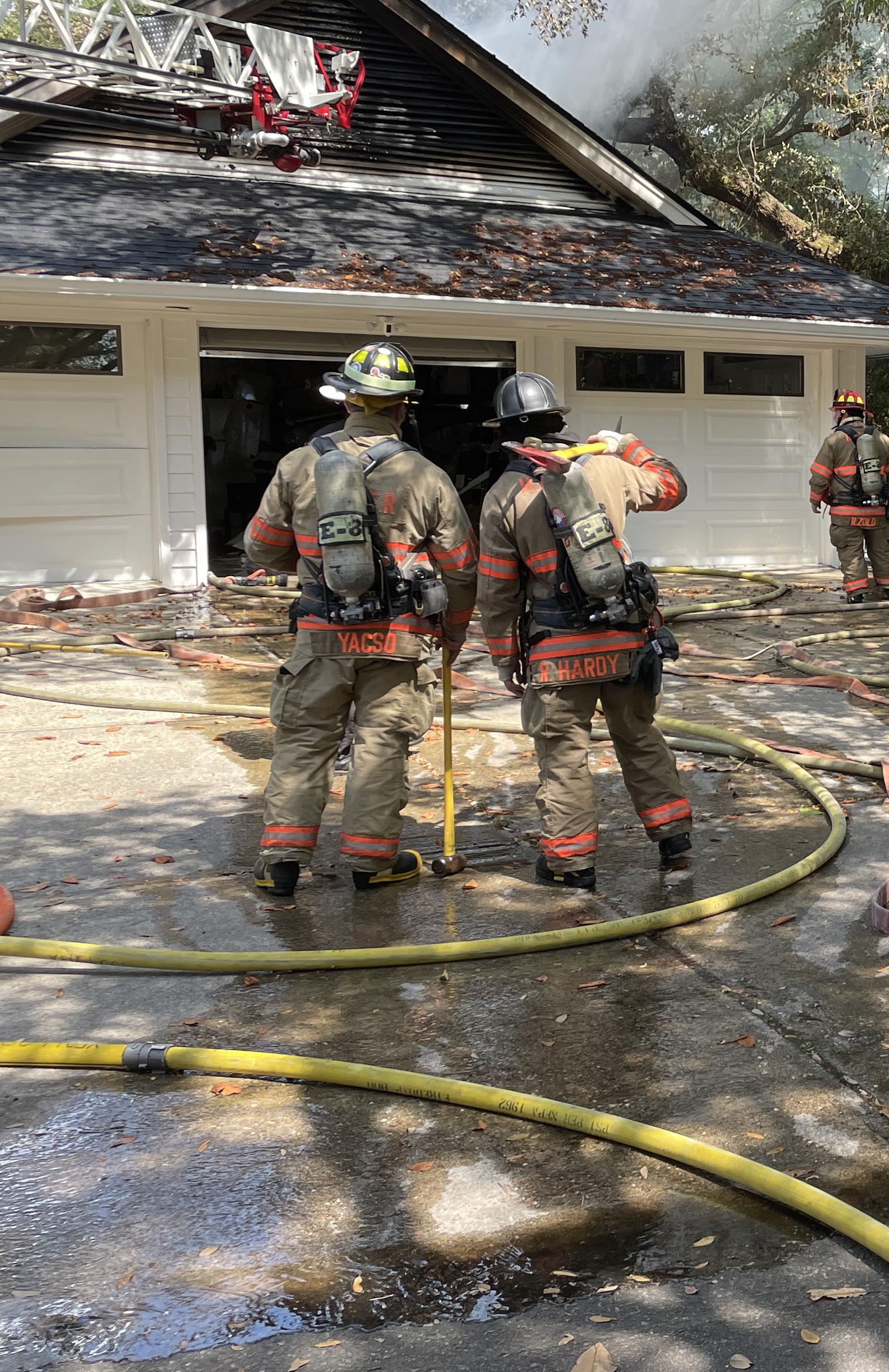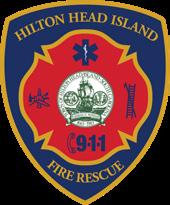










The Lowcountry is vulnerable to a variety of hazards including hurricanes, tornadoes, flooding, earthquakes, wildfires, hazardous materials incidents, terrorism, power outages, and resource shortages.

In your planning, you should assume that basic services such as electricity, water, gas, and telephones may not be available for some time. This is why it is critical for everyone to:
The Town of Hilton Head Island’s Emergency Management Division developed this Field Guild to help you prepare for all kinds of emergencies. You can use this guide to make an emergency plan based on your personal needs or situation. It includes helpful checklists and sections for you to fill in with your individualized plan information.
Learn the threats that we face on Hilton Head Island.
Know what actions and precautions YOU should take before, during, and after an emergency.
Use common sense, follow official instructions and stay informed.
Take a first aid and CPR course.
Build an emergency kit.
Use this Field Guide to Make a Plan
By knowing your vulnerability, developing an emergency plan and keeping an emergency kit, you can reduce the effects of a hurricane’s impact on you or your family.
Storm surge, heavy rainfall, inland flooding, high winds, tornadoes, and rip currents are hazards associated with hurricanes. Of these, storm surge has the most potential for loss of life on the coast.
Hurricane categories do not account for storm surge.
Storm surge is an abnormal rise in sea level accompanying a hurricane or other intense storm. This advancing surge combines with the normal tides and increases the water level to heights that will impact roads, homes, and other critical infrastructure. This rise of water can cause severe flooding in coastal areas, particularly when the storm tide coincides with the normal high tide.

Only the Governor of South Carolina has the authority to order an evacuation for the entire Island. Prepare now.

Know how you will get there.
Know the evacuation routes or roads you plan to take.
Know where you will go.
Make plans that will accommodate young children and pets if necessary. If you plan on using a public shelter, be aware that it may not accommodate pets.
Have a Plan “B.”
Call 843-757-5782 for pre-storm transportation.
Register for a ride through the Hurricane Evacuation Assistance Registry at www. palmettobreezetransit.com/ hurricane-evacuation-information


Fasten shelves and appliances securely to walls
Place large, heavy objects on lower shelves.
Store glass, china and other breakable items on lower shelves or in drawers.
Repair defective electrical wiring or leaky gas fixtures. These present major post- earthquake fire risks.
Repair any deep cracks in your foundation or ceiling. Get expert advice if these are discovered.


• FEMA – www.ready.gov/earthquakes
• Red Cross – www.redcross.org/prepare/disaster/earthquake
• US Geological Survey – www.usgs.gov/natural-hazards/earthquake-hazards/ science/prepare?qt-science_center_objects=0#qt-science_center_objects
Determine in advance where you will take refuge.
Underground shelters are uncommon on the Island; take shelter in an interior room or hallway on the lowest floor of a building.

Stay away from windows, doors, and outside walls.
Avoid auditoriums, cafeterias, and gymnasiums that have wide span roofs.
DO NOT stay inside a trailer or mobile home! If possible, move to a building with a strong foundation.
DO NOT get under an overpass or bridge.
Go to your vehicle, buckle your seat belt and drive to the closest sturdy shelter.
If conditions worsen and your vehicle is being hit by debris, pull over and park. Stay in the car with the seat belt on. Put your head down below the windows; cover your head with your hands and a blanket, coat or other cushion if possible.
If you can safely get noticeably lower than the level of the roadway, leave your car and lie in that area, covering your head with your hands.
Do not get under an overpass or bridge. You are safer in a low, flat location.
Watch out for flying debris.
• FEMA - www.ready.gov/tornadoes
• National Weather Service - www.weather.gov/ safety/tornado
• SC Emergency Management Division - www.scemd org/prepare/types-ofdisasters/tornadoes/
Whether during a hurricane, tropical storm, or simple rainstorm, flooding may affect large portions of the Island. One of the most proactive measures you can take as a homeowner is to purchase flood insurance through the National Flood Insurance Program (NFIP).
Remember to avoid contact with flood water. Never walk through or drive on flooded roads. Assume all flooded water is contaminated and thoroughly decontaminate anything that becomes wet. Be prepared to shelter in place using your emergency kit.
A tsunami is a vast volume of seawater in motion, extending from the surface to the ocean floor. Tsunamis can travel at speeds of up to 600 mph (jet speed) in deep water; the characteristics of the ocean floor affect them. In shallow water, tsunamis slow down, bunch up, and can get enormously tall as they approach coastlines.

• Town of Hilton Head Islandwww.hiltonheadislandsc.gov/flood/
• Flood Plain Administrator - 843-341-4757
• NFIP - www.fema.gov/flood-insurance
Use this checklist to determine how safe your home is from fires.
Are exits clear and unobstructed?
Are extension cords in good condition (not frayed or cracked) and only used as temporary wiring?
If multiple items need to be plugged in, is a surge protector being used?
Are fire extinguishers visible and accessible?
Is combustible rubbish removed from the building on a regular basis?
Are oily rags and combustible chemicals stored in a container that limits oxygen or is filled with water?
Do you have working smoke alarms?
Are attic, closets, and other storage areas kept neat and clean?

Do you test your smoke alarm batteries monthly and change the batteries twice a year?
Do you have your chimney and furnace/ AC unit cleaned and serviced yearly?
Are propane tanks stored outside the house?
Is your address number clearly visible from the street?
You should be prepared to provide your own basic necessities for up to five days. Modify this list to suit your own personal needs. Consider the individual needs of each person you are preparing for.
One gallon of water per person per day
Nonperishable food
Manual can opener
Eating supplies (plates, napkins, and utensils)
Baby supplies such as formula, bottles, and diapers
Books, toys, games or other activities
Food and water for pets
Shot records for your pets
First aid kit
Emergency reference material (first aid book)
Clothing for several days
Credit card and cash
A whistle or air horn to signal for help
Battery operated or hand crank radio
Flashlights and batteries
Basic tool kit and work gloves
Spare pair of reading or prescription glasses
Air mattress and sheets
Toilet paper, moist towelettes, garbage bag and plastic ties for personal sanitation
Soap, toothbrushes, toothpaste, hand sanitizer, female hygiene supplies
Local, regional, and state maps
Dust mask
Cell phone with charger

Some items that you will need in an emergency kit may be too difficult to maintain within the kit. However, they should be readily available in your home if you need to shelter in place or evacuate. Some of those items include:
A list of a personal network of people who can help you in an emergency or evacuation.
Functional need items such as a walker, oxygen, wheelchair, or hearing aid.
Instructions for the use of special medical equipment. Teach people in your network how to use the equipment
Style and serial number of any medical devices.
Size and weight of any special medical equipment.
Information from your oxygen supply company about its emergency plans and how you will maintain your supply of oxygen.
Written instructions regarding your care if you have any special care needs.
30-day supply of your prescription medications.
Laptop or tablet and accessories.
Patch kit for tires.
• Federal Emergency Management Agency: www.fema.gov
• FEMA Ready: www.ready.gov
• National Red Cross: www.redcross.org
• Lowcountry SC Red Cross: www.redcross.org/local/south-carolina.html
• Palmetto Breeze: www.palmettobreezetransit.com
• National Alliance for Mental Illness: www.namilowcountry.org
• SC Department of Health and Environmental Control: www.scdhec.gov/disaster-preparedness
If you are leaving your home to evacuate, it is a good idea to bring copies of important documents.
Before hurricane season, review and upgrade any of your existing insurance policies.
Passports
Social Security cards
Immigration Documents
Insurance policies
Licenses
Car titles and registrations
Wills
Contracts
House plans
Mortgage and property deeds
Immunization and other medical records
Bank account numbers
Birth certificates
Marriage certificates
Adoption Decrees
Death certificates
Deeds
Stocks and bonds
Prescriptions
Recent tax returns
Military records
Important photographs and other irreplaceable documents
Backup computer files on a portable drive
Photos of valuables in your home
N ame ______________________________
Address _____________________________
Phone ______________________________
Other info ___________________________
N ame ______________________________
Address _____________________________ Phone ______________________________
Other info ___________________________
PHYSICIAN #1
N ame ______________________________
Address _____________________________
Phone ______________________________
Other info ___________________________
PHYSICIAN #2
N ame ______________________________
Address _____________________________
Phone ______________________________
Other info ___________________________
You should be prepared to provide your own basic necessities for at least three days during a disaster. Make the same preparations for pets or service animals. Do not leave your pet behind.
Modify this list to suit the needs of your pet(s) and/or service animal(s).
Food, water, and treats for three days
Food, water bowl, and manual can opener
Proof of vaccination and medical records
Veterinarian emergency plans and emergency contact information
First aid kit, extra leash, and collar
• Hilton Head Humane Association: www.hhhumane.org/ 843-681-8686
• SC Association of Veterinarians: www.scav.org/scvrc 1-800-441-7228
Contact information for a veterinarian at your evacuation location
Certification or documentation for service animals
Current photo of the animal with the owner
Crate, bed, and/or blanket, and toys
Litter, pan, and plastic bags
• South Carolina Animal Care and Control: www.scacca.org/ 803-238-7438
• Beaufort County Animal Control Office: www.beaufortcountysc.gov/animal-services/index.html 843-255-5010
Stay up-to-date by obtaining information from reliable sources.
• Town of Hilton Head Island MyHHI App https://hiltonheadislandsc.gov/myhhi/
• Town of Hilton Head Island Emergency Alerts https://public.govdelivery.com/accounts/ SCHILTONHEAD/subscribers/new
• Nixle text alerts https://bcso.net/beaufort-county-sheriffs-office/advisories/
• The Town of Hilton Head Island: www.hiltonheadislandsc.gov
• The Town of Hilton Head Island YouTube Channel: www.youtube.com/c/TownofHiltonHeadIslandSC
• Beaufort County Emergency Management: www.bcso.net/our-agency/emergency-management-division/
• South Carolina Emergency Management Division: www.scemd.org
• SCDOT Traveler Information System: www.511sc.org
• National Hurricane Center: www.nhc.noaa.gov
• National Weather Service Charleston: www.weather.gov/chs/
• SC Insurance Association: www.scinsurance.net/
• Federal Emergency Management Agency (FEMA): www.ready.gov
• National Flood Insurance Program (NFIP): www.fema.gov/flood-insurance
• American Red Cross: www.redcross.org/
• Hilton Head Island/Beaufort County Hurricane Re-Entry Hotline: 833-254-6400
• Town of Hilton Head Island: 843-341-4600
• Beaufort County Emergency Management: 843-255-4007
• Beaufort County Re-Entry Hotline: 1-800-963-5023
• SC Department of Transportation: 855-GOSCDOT • 855-467-2368
• SC 511 Traveler Information System: 511 on your cell phone.
• Hispanic Outreach of SC: 803-419-5112
• Hilton Head IslandBluffton Chamber of Commerce: 843-785-3673
• Beaufort Regional Chamber of Commerce: 843-525-8525
• Palmetto Breeze: Pre-storm transportation 843-757-5782
During an evacuation 843-255-4000
• The Town of Hilton Head Island on Twitter @TownofHHI
• The Town of Hilton Head Island on Facebook @TownofHHI
• The Town of Hilton Head Island on Flickr @TownofHiltonHeadIsland
• Beaufort County on Twitter @bftcountysc
• Beaufort County Government SC on Facebook @beaufortcountysc
• South Carolina Emergency Management Division on Twitter @SCEMD
• South Carolina Emergency Management Division on Facebook @SCEMD
• South Carolina Department of Transportation on Twitter @SCDOTPress


Prepare a shelter-in-place kit containing the following:
A battery-operated AM/FM radio with spare batteries
Flashlight with spare batteries
Food and bottled water (one gallon per person per day)
Towels
Toys for young children
First-aid kit and medicine
Other items essential for your family’s survival
Include food and water for your pets
Consider sanitary arrangements for your family and pets.
Food and water for three days (one gallon per person per day) and/or special dietary foods
Toiletry items (soap, toothbrush, toothpaste, shampoo)
Prescription medicines, medical equipment and important medical records
Clothing for several days
Blankets, pillows, and towels
Identification and important papers
Checkbook, credit card and cash
Flashlights with extra batteries and phone chargers
Baby supplies
Pet supplies
Have a good road map.
Know how to safely shut off electricity, gas, and water.
Secure all loose yard items.
Move valuable items to inner rooms or upper floors.
Check your refrigerator and freezer for perishable items.
Unplug major appliances to avoid damage from lightning strikes or power surges.
Consider obtaining and predrilling plywood to board up windows of your home.


Brought to you by